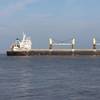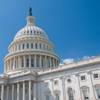Devon Grennan, president and CEO of Global Diving & Salvage, and president of the Spill Control Association of America (SCAA) asks the tough questions. What are the biggest challenges the spill response industry faces in light of the current political and economic climate in the United States? And what is SCAA doing to meet these challenges?
I see the primary challenge that the spill response industry – as well as SCAA’s membership – currently has is to manage expectations and competing interests at a unique point in our nation’s energy renaissance. There has been a historical focus on offshore/near shore prevention and preparedness regulations for large vessels and fixed facilities, and with recent economic dynamics across the globe, there has been an increase in alternative methods of exploration, extraction and transportation of oil.
Our constituency are the producers and transporters of oil and gas who currently have large pressures on them in a depressed economic climate which impacts service provider revenues; our operations are heavily (and appropriately) regulated by local, state and federal agencies at a time when proactive, sound environmental policies are under review by the current federal administration; and our response community’s ability to respond is challenged by an aging and diminishing workforce and often times, unrealistic expectations by public stakeholders.
Prevention and preparedness regulations have worked well, as incident frequency has dropped to historic levels. As an unforeseen consequence of this success, we have supplanted actual response experience for simulated response experience. And with these fewer opportunities, equipment manufacturers limit investment in new technologies and response service providers lack the opportunity to develop tradesmen in the response community. New technology developments and private industry commitments require a confident and robust market to support them, or government incentivization to promote them.
We are also faced with another challenge in the coming years which is not exclusive to the maritime trade: we have more professionals exiting the industry than are coming in. And if you look at the response industry as a whole (both marine and terrestrial), we are increasingly challenged in attracting a new generational workforce with an emphasis on vocational skills versus high tech skills.
Finally, public expectations for response does not discern the significant difference between publically funded response efforts surrounding public safety priorities (such as police, fire and emergency medical services) and privately funded response efforts for environmentally sensitivity priorities (such as spill response and remediation). The immediacy and efficacy of information flow also creates unrealistic expectations on the existing response framework that is used by industry. Information (and misinformation) travels faster than we can actually respond.
We took a poll of our membership in 2016 to estimate how many emergencies our members responded to annually, and the estimated total was over 15,000 a year ranging from small land-based hazardous materials to large marine oil spills. This compellingly states the importance of our members’ response posture to industry. SCAA members have also played critical roles in homeland security and public safety response (most notably in Washington DC in the aftermath of 9/11, heritage contaminated sites under NPL, the Deepwater Horizon incident, and the aftermath of Hurricanes Katrina on the Gulf Coast and Sandy on the East Coast, and the Avian Influenza response in the Midwest). SCAA members are well established, professional organizations that stand ready to respond.
How is SCAA meeting these challenges?
As the Voice of Spill Response Professionals, SCAA represents a broad industry membership of emergency responders, manufacturers and environmental firms who collectively address industry challenges, in order to strengthen and improve our nation’s response community. We have an aggressive association strategy focused on closing the gap of those challenges, as follows:
Future Environmental Leaders: SCAA has a committee focused solely on the promotion and networking of young professionals within the response community, including industry and governmental partners. We are focused on recruiting into our workforce and retention efforts once they experience the dynamics of the response industry.
Partnership with Government: SCAA has development a collaborative relationship with federal agencies, most notably the United States Coast Guard (USCG), Bureau of Safety and Environmental Enforcement (BSEE), National Oceanic and Atmospheric Administration (NOAA), United States Environmental Protection Agency (USEPA) and Pipeline and Hazardous Materials Safety Administration (PHMSA). We seek out common ground and practical conversations to build appropriate relationships and expectations with the regulatory community.
Advocacy of Progressive Policies and Regulations: SCAA is purposeful in the promotion of advancements in response technology and appropriate regulations that further prepare our industry to respond to our nations’ emergencies. We believe that forward leaning ideas provide continual improvements within the response regime for our industry.
In addition, SCAA encourages further professional development of our response industry through the following efforts:
Best Practices for Responder Health and Safety: SCAA promotes sharing of best practices within our membership through our Health and Safety Committee to ensure that our response organizations are providing the best protective approach for our response employees. We acknowledge that our personnel are the foundation of our industry, and their safety is the most critical component to responding to emergencies.
Responder Immunity: SCAA continues to promote specific and inclusive responder immunity legislation to ensure that our response community is adequately protected when the bell rings. Professional response services acting responsibly under the oversight of the federal government should have the same level of immunity that is granted to our public response system.
Private industry provides a critical component in meeting the increasing challenge of environmental protection, environmental restoration, and homeland security and public safety response operations. One thing is for certain: Although our Association has been a constant presence in the spill community since 1973, we learned long ago that if you don’t evolve with the changing times, market conditions and regulatory changes, then you won’t survive. We spend a lot of time with our Members seeking input on how we can best adjust to changing conditions, so that we provide a greater value. SCAA and its members are committed and stand ready to serve, and we encourage you to collaborate with us in providing a secure and prepared future.
The Author
Devon Grennan is president and CEO of Global Diving & Salvage, Inc., a marine services industry provider specializing in marine casualty response, subsea construction and commercial diving. Grennan joined Global in 1995 where he has held a number of roles, including marine environmental supervisor, environmental division manager and general manager. He has been in his current role since 2009. Grennan is a member of several regional and national industry associations including the Puget Sound Maritime Historical Society, the Propeller Club and The Beavers. Grennan was appointed president of the Spill Control Association of America (SCAA) in April 2017, and has served on the SCAA board since 2012.













